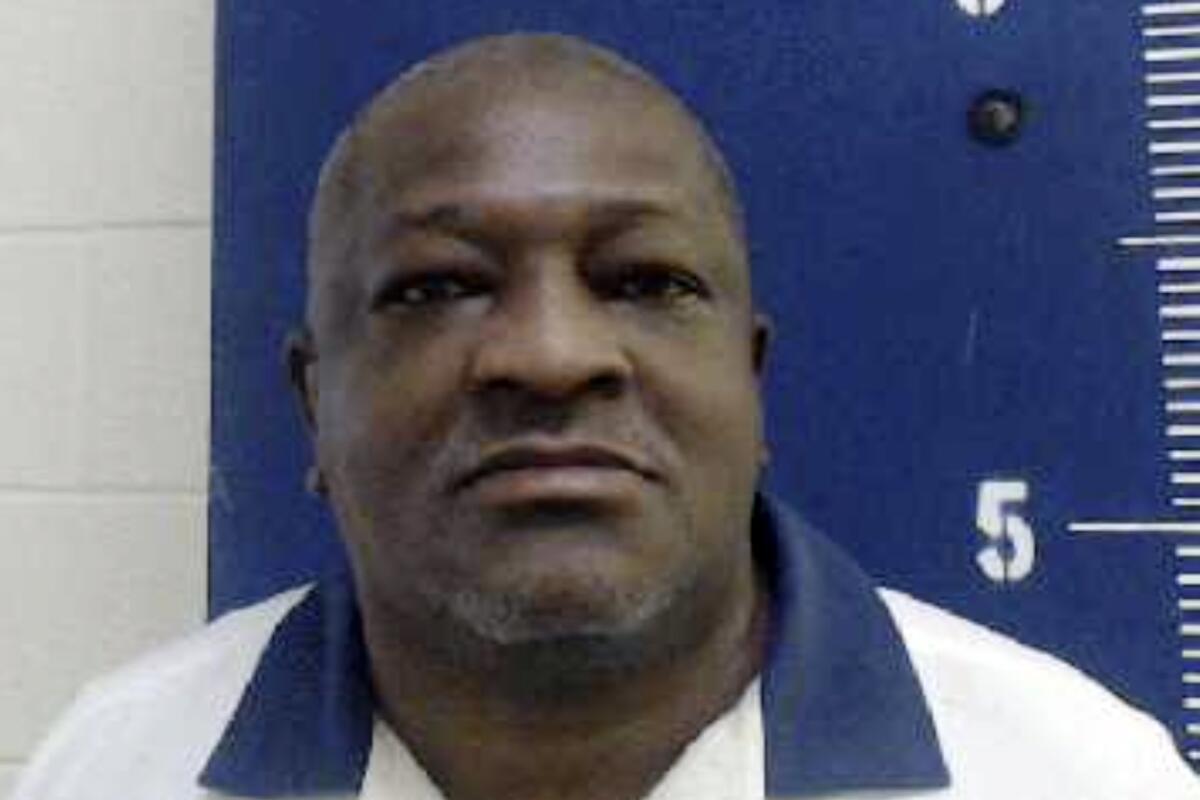In Georgia’s first execution in years, man who killed ex-girlfriend is put to death

- Share via
JACKSON, Ga. — A Georgia man convicted of the killing of his former girlfriend three decades ago was put to death Wednesday evening in the state’s first execution in more than four years.
Willie James Pye, 59, received an injection of the sedative pentobarbital and was pronounced dead at 11:03 p.m. at the state prison in Jackson. He was sentenced to die for his conviction in the November 1993 abduction, rape and shooting death of Alicia Lynn Yarbrough.
Pye’s lawyers filed late appeals urging the U.S. Supreme Court to step in, but the justices unanimously declined to stop the execution. The defense team argued that the state hadn’t met necessary conditions for resuming executions after COVID-19 limitations were imposed and reiterated arguments that Pye was ineligible for execution because of an intellectual disability. State responses argued that the claims had been previously settled by the courts and were without merit.
Pye had been in an on-and-off romantic relationship with Yarbrough, but at the time she was killed she was living with another man. Pye, Chester Adams and a 15-year-old had planned to rob that man and bought a handgun before heading to a party in a nearby town, prosecutors have said.
The trio left the party around midnight and went to the house where Yarbrough lived, finding her alone with her baby. They forced their way into the house, stole a ring and necklace from Yarbrough, and forced her to go with them, leaving the baby alone, prosecutors said.
The group drove to a motel, where they raped Yarbrough and then left the motel with her in the car, prosecutors said. They turned onto a dirt road and Pye ordered Yarbrough out of the car, made her lie face down and shot her three times, according to court filings.
Yarbrough’s body was found on Nov. 17, 1993, a few hours after she was killed. Pye, Adams and the teenager were quickly arrested. Pye and Adams denied knowing anything about Yarbrough’s death, but the teenager confessed and implicated the other two.
The teenager reached a plea agreement with prosecutors and was the main witness at Pye’s trial. A jury in June 1996 found Pye guilty of murder, kidnapping, armed robbery, rape and burglary, and sentenced him to death.
Pye’s lawyers had argued in court filings that prosecutors relied heavily on the teenager’s testimony but that he later gave inconsistent statements. Their filings contended that such statements, as well as Pye’s testimony, indicated that Yarbrough left the home willingly and went to the motel to trade sex for drugs.
Lawyers representing Pye also wrote in previous court filings that their client was raised in extreme poverty and that his childhood was characterized by neglect and abuse by family members who were often drunk.
His lawyers also argued that Pye suffered from frontal lobe brain damage, potentially caused by fetal alcohol syndrome, which harmed his planning abilities and impulse control.
Pye’s lawyers had long argued in courts that he should be resentenced because his trial lawyer didn’t adequately prepare for the sentencing phase of his trial. His legal team argued that the original trial attorney failed to sufficiently investigate his “life, background, physical and psychiatric health” to present mitigating evidence to the jury during sentencing.
A federal judge rejected those claims, but a three-judge panel of the 11th U.S. Circuit Court of Appeals agreed with Pye’s lawyers in April 2021. Then the case was reheard by the full federal appeals court, which overturned the panel ruling in October 2022.
Pye’s co-defendant Adams, now 55, pleaded guilty in April 1997 to charges of malice murder, kidnapping with bodily injury, armed robbery, rape and aggravated sodomy. He was sentenced to five consecutive life prison terms and remains behind bars.
Martin writes for the Associated Press.
More to Read
Sign up for Essential California
The most important California stories and recommendations in your inbox every morning.
You may occasionally receive promotional content from the Los Angeles Times.










